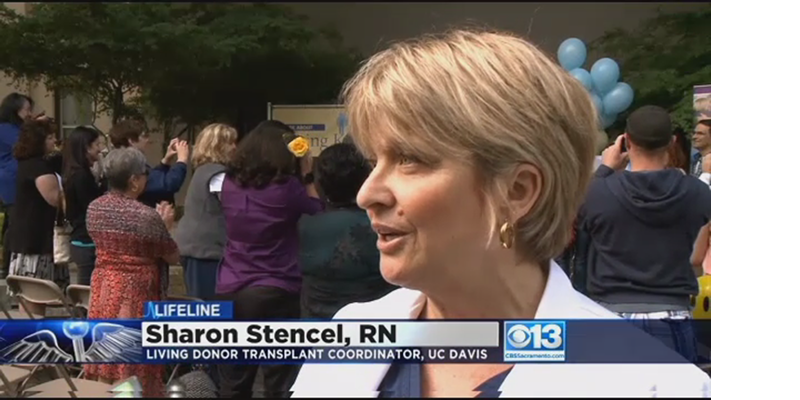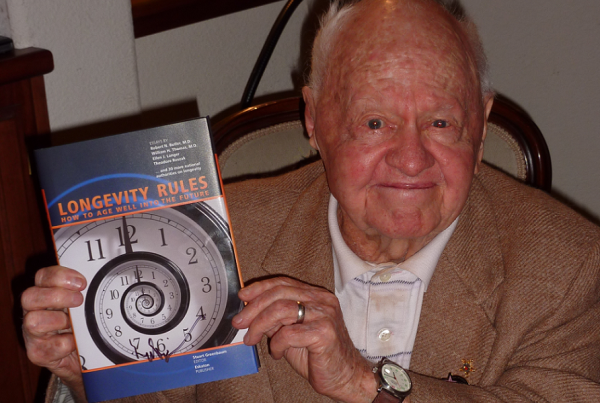
“Walk the talk.” Car dealers routinely feature this pitch in their repertoire. “I drive the same car.” So do sales reps for cable and wireless companies. “This is my provider; they’re much more reliable and faster.” Insurance agents, of course, always claim to have the same plan they’re selling.
In fact, in almost all lines of business the personal endorsement is persuasive and effective. It implies conviction and commitment, sincerity and trust.
But, in medicine? Does a patient’s confidence rise when a primary doctor says this is the surgeon I’d want working inside my brain; or when a therapist says this new approach worked for me; or when a transplant coordinator says I donated an organ?
Take the latter scenario. You’re thinking about donating a kidney. Might your concerns be assuaged by a healthcare professional who just happened to donate her kidney within the past year?
For real: Sharon Stencel, a registered nurse and living donor transplant coordinator with the University of California, Davis Transplant Center, uses her recent surgery to candidly share the good, the bad, even the not-so-ugly scar from the experience.
While comprehensive patient education and medical evaluation prepares donors for the practicalities of what’s ahead, the empathy of someone who’s “walked the talk” prepares them emotionally and helps ease the natural anxieties.
“I FEEL YOUR PAIN”
“There will be some discomfort and pain, but we have medication to manage that,” Stencel explains to patients. “Our surgeons use an advanced laparoscopic technique to remove the kidney, so the scar is small, almost unnoticeable,” a result she shares — and occasionally shows, usually to younger women. “Plan to take it easy for about 6 weeks after surgery … no matter how good of shape you think you’re in,” she reinforces with conviction, especially to the younger, fit guys who think they’ll be the exception and bounce back in a couple of weeks.
Transplant candidates and patients always have plenty of questions, but Stencel notices they seem to come more freely once they know their healthy, confident coordinator successfully completed what they are contemplating. Her participation in a complex transplant exchange process (which matched compatible donors and recipients in California, Florida and Michigan) reinforces the benefits of this increasingly popular “swap” process.
“For me personally and knowing the facts, donating my spare kidney to help my aunt live a fuller, dialysis-free life was an easy decision,” Stencel says. “The benefit far outweighed the minimal risks and inconvenience. Plus, there’s the ripple effect; every other deserving individual on the waiting list moves up one space.” She then promptly notes, “Still, it is major surgery so I absolutely respect an individual’s choice whether to donate.”
With a reflective smile, she confidently adds, “I honestly had no idea just how much value my personal experience would bring to my professional role. Donation is definitely a gift that keeps giving.”





This is amazing — no better way to underscore the importance of one’s mission!
Sharon is the best!